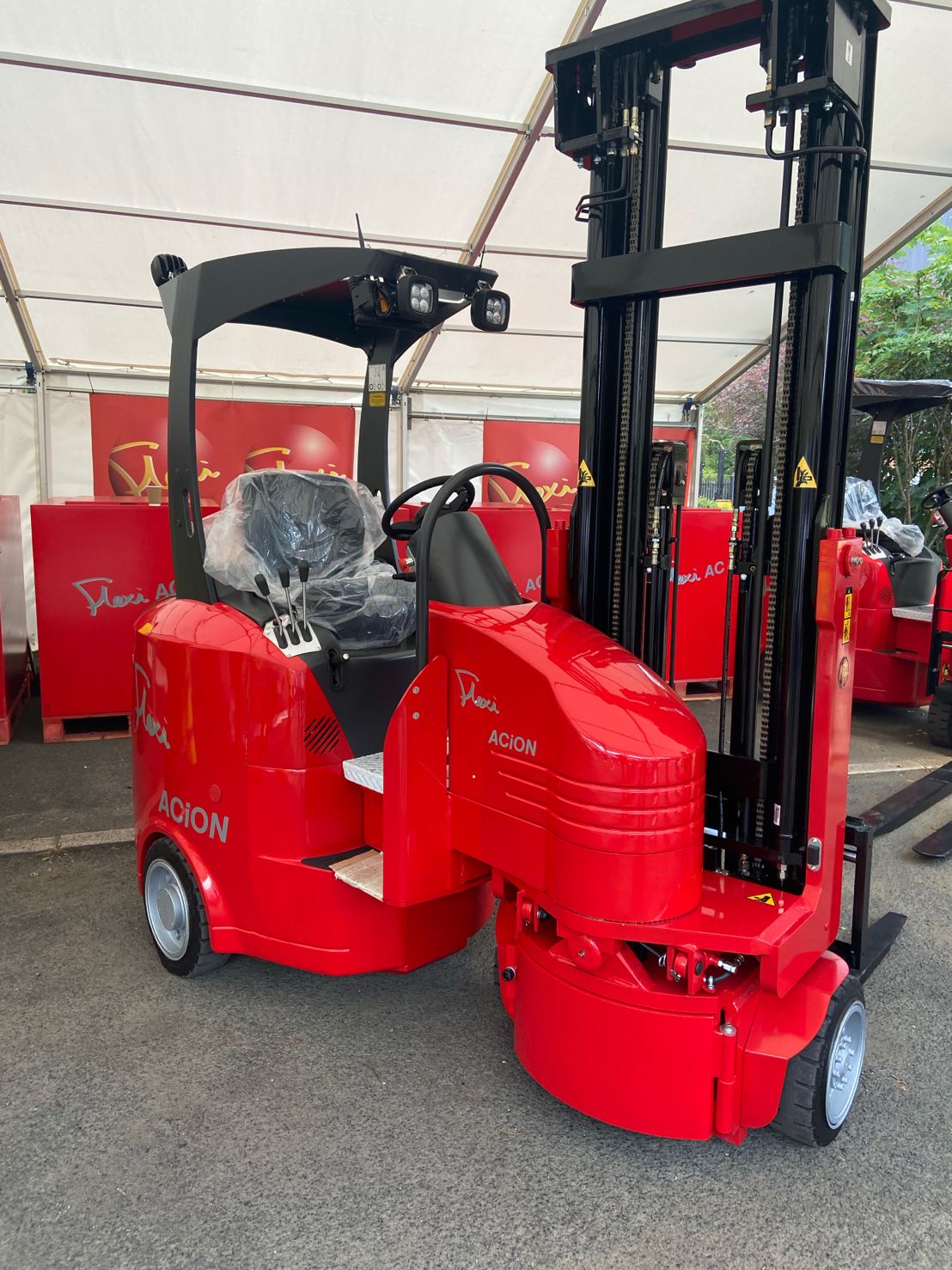Frazer Watson, VP-Sales UK/Ireland at AMR designer and manufacturer iFollow, runs through the key questions customers need to ask when considering an Autonomous Mobile Robot (AMR) solution.
Interest in Autonomous Mobile Robots (AMRs) is escalating at a rapid pace. The classic combination of camera and QR-code navigation robots is proliferating in logistics environments across the UK for applications in goods receiving, despatch and order picking. This is down to falling costs for the technology allied to a growing list of good reasons to make that investment – reasons such as: changing workforce demographics, constraints on supply and movement of goods, supply chain disruption, a Covid-generated upswing in online retail, increasing interest in industry 4.0 technologies and the ever continuing drive to improve productivity.
In a world where uncertainty is becoming the everyday experience, companies in all sectors must strive for improved accuracy, efficiency, productivity and sustainability. The key consideration must be gaining competitive advantage because those that do not or leave it too late will fall behind.
Many logistics operations are reconfiguring their warehouse networks around flexible, scaleable solutions to provide fast and reliable fulfilment closer to the growing number of customers in urban centres. Scarcity of available property and restrictions for transport in these areas often results in the need to rethink warehousing estate and the internal fit out. They are looking at fresh thinking on how these facilities are best served by materials handling equipment. Automated materials handling solutions without the need for dedicated infrastructure, such as AMRs, are in prime position on the flexibility spectrum. This means they can contribute to future-proofing warehouse operations, while improving operations.
Many will still perceive mobile robots as leading edge technology and are only now considering an AMR solution for the first time. In so doing there are five key questions they should be asking:
1. What can the AMR carry?
This consideration comes in two parts, with load capacity generally being the initial one. For many AMRs, this can be a constraint but those able to carry loads up to 1.5 tonnes will be suited to a broad range of applications in warehouses and fulfilment centres. The other half of the load-carrying question is what type of load-carrying unit can the AMR handle? Most warehouses see a wide range of load-carrying units going through their doors, particularly as the numbers of suppliers swells and their locations diversify. This can result in dealing with a mix of traditional pallets, Euro pallets, roll cages, plastic containers, etc. An AMR that can handle all of these will be an incredible asset for warehouse versatility.
Some systems will be required to perform a specific task, focused on a single load carrying unit. For example, handling roll cages is a fundamental part of the grocery retail intralogistics operation. The ability for a mobile robot to transport roll cages safely and securely ticks this sector’s box; furthermore, a single AMR that can handle two roll cages at once to a total load of 1,300 kg will be even more appealing. Given the height of roll cages, a low height profile, such as the 17cm height of iFollow’s AMRs, will assist in smooth travel through entrances. A low height also allows a device to fit under any surface or load carrying unit.
2. In what circumstances will the AMRs operate?
Warehouses might seem fairly similar but an AMR navigating its way round the building will have a different perspective. For a start, will it be too cold for the mobile robot to operate – or even, in rare circumstances, too warm? If so, an AMR able to comfortably perform in temperatures from -25° C to +40°C without degradation of battery life will be required. Coldstores seeking ways to minimise their normally demanding energy use will particularly appreciate a mobile robot that can carry two roll cages at once to move more product quickly in a cold area, while also ensuring that coldstore doors remain closed for a greater proportion of a day.
Speaking of batteries, such operations will be seeking a battery life of 16 hours with opportune charging to maximise uptime. A full charge from 10% to 100% in 1.5 hours would be handy. Given the relative roughness of many warehouse floors, a robust AMR, built to withstand the rigours of constant traveling over the long-term will be a big benefit.
3. Will AMRs be safe in the warehouse?
AMR technology achieves a productivity advantage without compromising operator health and safety. The route planning software prevents robots from heading towards fixed obstacles, such as walls or racking, as well as moveable objects such as workers, which are detected by the machine’s sensors. AMRs with LIDAR arrays navigate ‘safe areas’ for forward or reverse motion – if anything should be detected within these areas, the AMR’s motor will stop and the brakes are applied.
Using AMRs to automate the transportation of goods, roll cages, pallets and other storage units between these areas in a warehouse is a highly effective method for separating people from vehicle traffic to avoid the risk of collisions.
4. Will I be able to rely on mobile robots?
Warehouse operations are generally rigorous with repetitive transportation of heavy loads across rough floors, over long shifts. Clearly this suggests paying careful consideration to the quality of the robot itself. What is it made from? How well is it made? The broad range of AMR suppliers promoting mobile robots for warehouse applications will be offering systems with varying degrees of build quality. Some are built to ensure low costs, while others are designed to provide better lifecycle cost benefits, and will have undergone a thorough quality process.
Compliance with local standards is fundamental: buying a fleet of mobile robots, for example, without certification would be a huge risk. The ability to provide local support and parts for quick response will be important.
5. Will I gain a solution rather than a product?
Every business is different. A supplier that designs and manufactures its own robots and uses its own software will be able to tailor solutions to meet the specific needs of individual applications. A properly conceived and designed AMR solution will always retain flexibility when it comes to internal transportation because, unlike AGVs or conveyors, they do not require fixed infrastructure. Distribution centres often work with a combination of pallets and roll cages, the ratios of which may change over time. An AMR that allows for a swift and simple swap of carrier frames will readily convert from cage transporter to pallet or trolley use, and vice versa.
Intelligent mobile robots offer a flexible solution that can be easily adapted to changing needs, which makes the technology ideal for supporting warehouse operations facing demands for ever-shorter delivery times from growing e-commerce channels as well as store orders.
Find out more about AMRs from the iFollow team at IMHX 2022 on Stow’s stands: 5B105 and 5B110.











